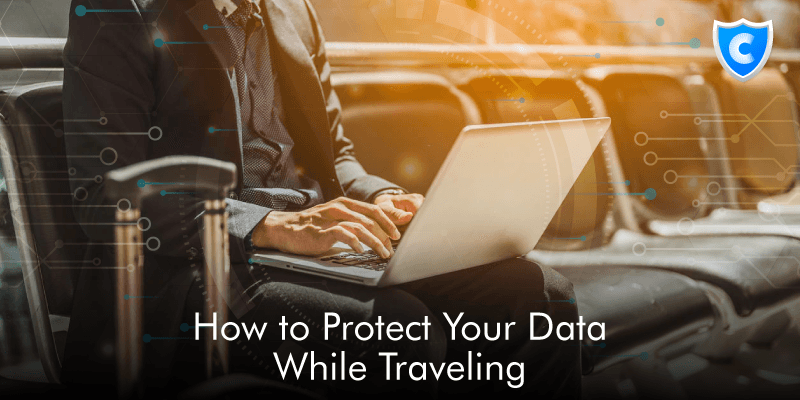
Welcome to the Covve Security Series, our new blog series on how to protect yourself and your business online. Good cybersecurity hygiene is critical in the age of data breaches, ransomware, and other digital threats. Over the next few months, we will share some quick and easy steps you can take to effectively enhance your digital security and safeguard your data.
Last week we went over the steps you can take to safeguard your devices, from encrypting your laptop to setting a PIN with your mobile carrier. But what do you need to do when you’re away from the office traveling or out in public to stay safe online?
Having your identity stolen or your computer go down due to malware while travelling is a nightmare. Some of the steps we’ve already taken, like encrypting your devices in case they are lost or stolen, will help you stay safe while on a business trip or vacation, but there are some additional precautions you need to take when on the go.
Use a VPN on Public Networks
Public WiFi networks often transmit data in plain text, leaving your browsing activity, emails, payment details, and login information at risk of being stolen by anyone snooping on the network. Identity thieves regularly use public WiFi at coffee shops or airports to steal sensitive data from unsuspecting victims.
Fraudsters have even been known to set up fake WiFi routers, known as “WiFi honeypots”, to siphon off data or install malware on devices.
So how can you avoid falling victim to one of these schemes? Use a Virtual Private Network (VPN) when on a public or unprotect WiFi network. A VPN will encrypt and securely transmit your data on the network, routing your connection through a “virtual tunnel”, blocking any would-be fraudster from snooping on your activity. VPNs also mask your IP address to prevent your activity from being tracked.
If you are working with sensitive company information on the go, a VPN is a must. There is a wide range of VPN options to choose from, some free and some paid. Most top VPN providers offer both a desktop and mobile version of their app, so you can set up and connect using your VPN on your phone and your laptop.
Avoid Public Chargers
When you’re on the go, finding juice for your phone is always top of mind. But be careful, public charging stations at airports, train stations, and hotels present a risk. “Juice jacking”, where hackers rig USB ports or cables to infect connected devices with malware, has become more common.
These rigged ports can be used to infect your devices or siphon off personal information through USB data transfer. Modified USB cables are sometimes used as well. Security experts recommend sticking to regular electrical outlets to charge your phone.
To be safe, avoid public charging stations when possible. Portable battery packs are also great for travelling and can help keep your battery topped up so that you’re not scrambling for a public charging station when on the go.
Minimize Connections and Sharing
To avoid connecting to unprotected and potentially nefarious WiFi networks at all, you should turn off your phone’s WiFi auto-connect feature. This way, you’ll only connect to networks that you manually choose.
The same goes for Bluetooth, which presents another potential vector that hackers can exploit to gain access to your device or data. Keep your Bluetooth turned off except for when you really need it.
You may also think about minimizing your location sharing, which can tip off thieves or fraudsters that you are away from home. It can also alert them to where you are staying and if you have left the hotel. While you are away, consider disabling your location on social media posts and using location services only for maps and necessary apps.
As always, the best protection is to stay vigilant. Keep your devices close to you and locked whenever you aren’t using them. If you travel with a portable hard drive, make sure your data is backed up and that your drive is encrypted in case it is lost or stolen. If you’ve been following our security series, you’ll be ready to safely travel with a headstart on any would-be hackers.
Written on 25 Nov 2020.
Related Posts: